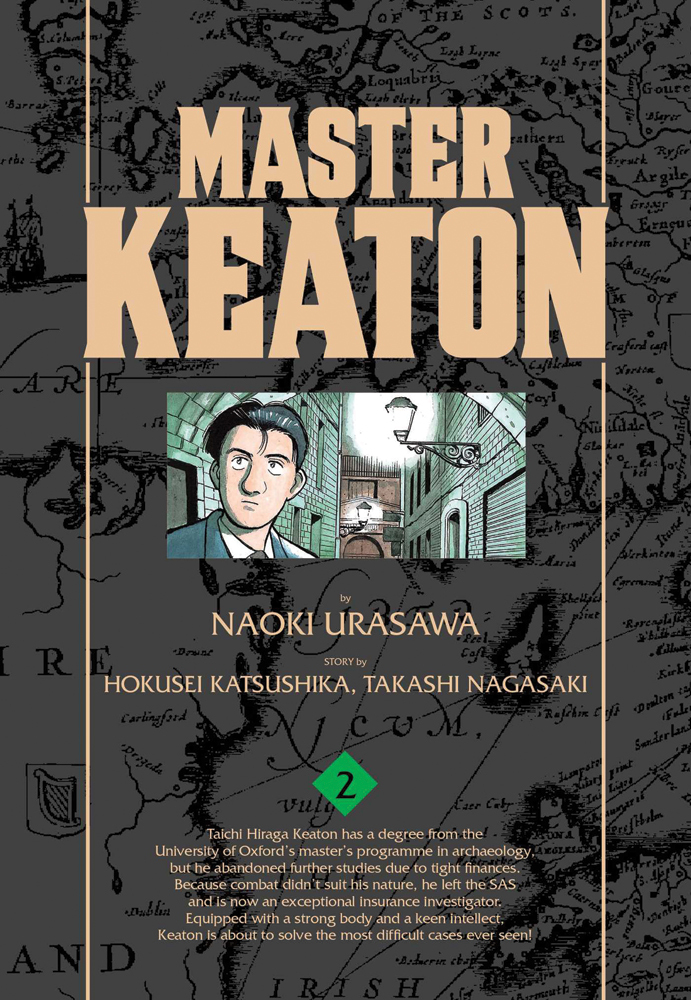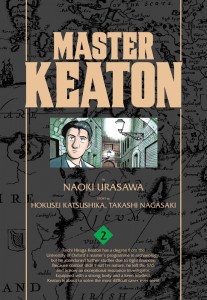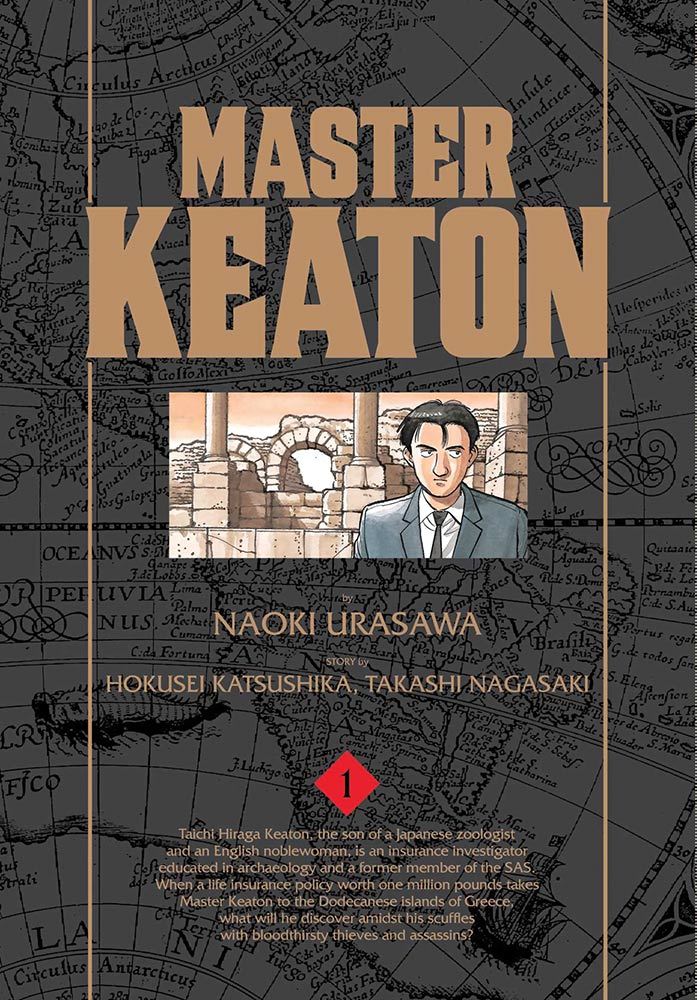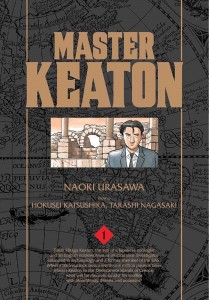By Naoki Urasawa, Hokusei Katsushika, and Takashi Nagasaki. Released in Japan by Shogakukan, serialized in the magazine Big Comic Original. Released in North America by Viz Media.
This is another solid volume of Master Keaton, with a bit more attention paid to the mysteries and a bit less to the leading man this time around. As I kept reading, though, one thing kept coming back to me. There were stories of a man stealing to try to help the poor in Italy; Olympic runners who also fell afoul of running for money so they could give to charity; old revolutionaries who have found that betraying a cause or lying for the sake of a woman doesn’t make one happy; and even Keaton’s class, unable to finish its final lesson as the school is being shut down and evil bureaucrats want the mural on the wall behind him. Only occasionally tragic, what this manga really is deep down is sad. It’s about chasing dreams, even as you realize that it destroys your life and you likely won’t succeed very well in any case.
This is likely not a surprise to anyone who has followed the career of Urasawa, a man who wrote one of the most depressing manga ever and called it “Happy!”, or Katsushika, who wrote for Golgo 13, another series that tended to end in death and disappointment, just with less focus on the emotions involved. But Master Keaton seems to go that extra mile. it’s the tail end of the Cold War in these stories, and everyone is simply weary. Even the terrorists are giving themselves up as they’ve had enough. The bounty hunters are ex-cops who got tired of letting the criminals get away. Little girls are cynical before their time as they see adultery and cruelty in their daily lives. And even Keaton, a man who loves his ex-wife but let her go anyway because he thinks it helped him grow up.
There are moments of triumph here, but they’re less in the emotions and more in the action and deduction. You see Keaton figure out the story behind a “werewolf”-inspired serial killer, or fend off neo-Nazi assassins to save some Turks in West Germany. There’s also one emotional high point in the story, where Keaton reminisces about his old mentor, who he named his daughter after, and finds his friends and family have managed to track him down for a reunion. Even then, though, the event is muted: Professor Scott looks at Keaton and says he’s turned out well, which brings the man to silent tears. I get the feeling as I read this series that despite being an archaeologist/insurance investigator/ex-SAS soldier/detective/awesome guy, Keaton really doesn’t like himself all that much.
But for this sort of series, I think that’s OK. It’s evocative of a mood, one that fits its time: Europe in the late 80s, with the Soviet Union starting to crumble and the last vestiges of the old guard left with nothing but regrets. I will even forgive this volume for trotting out the old “a man has his dreams” cliche. Keaton is the type of series you want to read while swirling around a glass of brandy and listening to Sonny Rollins. Just don’t be surprised if you’re counting your own regrets after you finish it.



